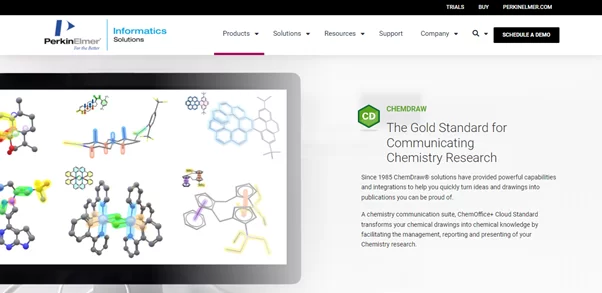In the ever-evolving landscape of scientific research, the marriage of artificial intelligence (AI) and organic chemistry has sparked a revolution. Scientists and researchers are now harnessing the power of AI software tools to accelerate their understanding of organic compounds, streamline drug discovery processes, and pave the way for groundbreaking discoveries. In this article, iLovePhD delves into the fascinating world of AI-driven advancements in organic chemistry.
Understanding Organic Chemistry
Before we dive into the world of AI software tools, let’s briefly explore what organic chemistry is all about. Organic chemistry is a branch of chemistry that focuses on the study of carbon-containing compounds, which are the building blocks of life. It plays a crucial role in various fields, including pharmaceuticals, agriculture, and materials science.
The Role of AI in Organic Chemistry
- Accelerated Drug Discovery: One of the most exciting applications of AI in organic chemistry is in drug discovery. Traditional drug discovery can be a lengthy and costly process, but AI is changing that. AI algorithms can analyze vast databases of chemical compounds, predict their properties, and even suggest potential drug candidates. This significantly speeds up the development of new medications.
- Predicting Chemical Reactions: AI-powered tools can predict chemical reactions with remarkable accuracy. This capability is incredibly valuable in organic synthesis, where knowing the outcome of reactions beforehand can save time and resources. Researchers can input reactants into AI algorithms, which can then predict the products and conditions needed for the reaction.
- Optimizing Molecular Structures: Designing new molecules with specific properties is a fundamental aspect of organic chemistry. AI can assist chemists in optimizing molecular structures for desired characteristics. Whether it’s creating more efficient catalysts or developing materials with unique properties, AI can help streamline the design process.
- Data Analysis and Visualization: The sheer volume of data in organic chemistry can be overwhelming. AI tools can organize and analyze this data, making it easier for researchers to identify trends and make informed decisions. Furthermore, AI can create visualizations that simplify complex chemical concepts, aiding in communication and understanding.
Notable AI Software Tools – How AI Software Tools Are Transforming Organic Chemistry
Several AI software tools have emerged as game-changers in organic chemistry:
ChemDraw
This tool uses AI to assist chemists in drawing complex chemical structures. It’s a staple in many laboratories for its user-friendly interface and accuracy.
Website: ChemDraw

IBM RXN for Chemistry
IBM’s AI-driven platform predicts chemical reactions and has the potential to revolutionize the field of organic synthesis.
Website: rxn.res.ibm.com
Chematica
Chematica is an AI platform that can design viable synthetic routes for organic molecules, making it a valuable tool in drug discovery.
Website: sigmaaldrich.com
MolSSI (Molecular Sciences Software Institute)
MolSSI develops AI tools and software packages that aid researchers in various aspects of computational chemistry.
Website: molssi.org
Also Read: 6 Best Online Tools for Drawing Chemical Structures
The Future of AI in Organic Chemistry
As AI continues to evolve, its impact on organic chemistry is only expected to grow. Researchers are optimistic about its potential to uncover new molecules, revolutionize drug development, and make the field more accessible to a wider range of scientists.
In conclusion, AI software tools are reshaping the landscape of organic chemistry. From predicting chemical reactions to accelerating drug discovery, these tools are opening up new possibilities and propelling scientific research to new heights. As we stand on the cusp of this AI-driven revolution, organic chemistry is poised for exciting advancements that will benefit society as a whole.
This article explores the exciting intersection of AI and organic chemistry, highlighting its potential and showcasing some noteworthy AI software tools.